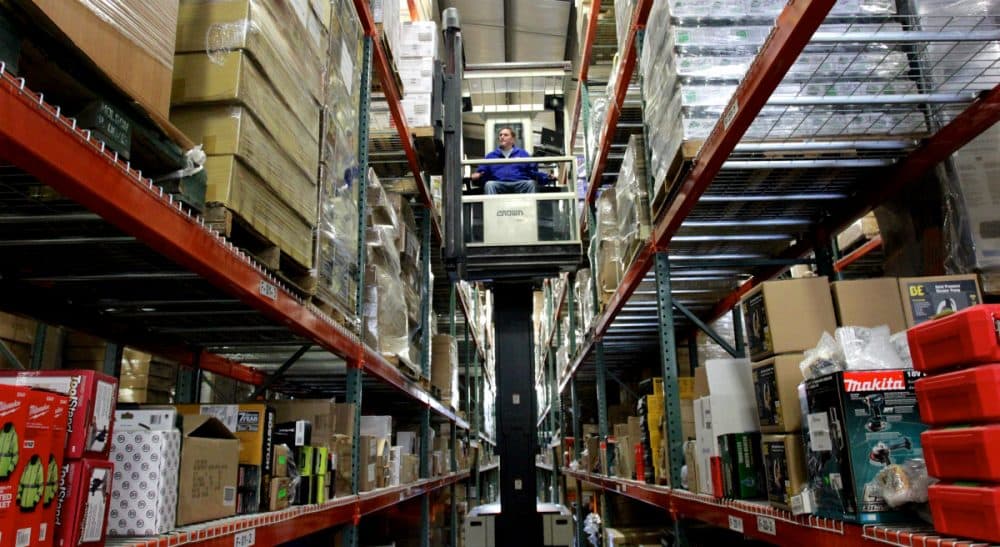Advertisement
A Misguided Trade Tantrum: Some Thoughts On The Trans-Pacific Partnership

Welcome to That '90s Show, otherwise known as the debate over free trade. While many justly condemn Republicans’ frequent anti-intellectualism, this rerun of the protectionist argument shows that some liberals have punched tickets to Fantasy Island, too.
It’s not that progressives are necessarily wrong to oppose President Obama’s hoped-for, 12-nation Trans-Pacific Partnership, or TPP. The deal, or what we know of it (details are still being negotiated), ultimately may deserve defeat. But from labor unions to Sens. Elizabeth Warren and Bernie Sanders, opponents are trapped in a hoary rant that the TPP, and free trade generally, savage American jobs.
That’s baloney. And if it turns out that ditching the TPP is in the national interest, ditching the mythology obstructing sound trade deals will be essential to securing those going forward.
If it’s necessary to kill the [Trans-Pacific Partnership], we should be clear in rejecting the wrong-headed hysteria raised against it, before negotiating the next, better deal.
That mythology is hardy. One pundit, admitting he opposed the deal “regardless of the benefits or liabilities,” dredged up the old bogeyman that we must abandon the economic growth that trade deals promote — something even pro-environment scholars studying climate change dismiss. Another critic declared the TPP “kind of the most dastardly, evil thing you can imagine,” demonstrating, to steal a line, that he slumbered through history class discussions of evil things like slavery and Nazism. The usually level-headed columnist Mark Shields explained the angst: "These trade agreements have raised the standard of living across the globe. They've lifted people out of poverty. [But] they've been a disaster for American workers. A total disaster," bleeding away jobs to cheap-labor nations.
It must be tough for progressives to brazen past what a Brookings Institution study called "the fastest period of poverty reduction the world has ever seen” due to globalization, including trade, in their defense of American jobs. That defense is misguided. The worthiest TPP critic is economist Paul Krugman, whose trade research won him a Nobel Prize — and he says the TPP likely isn't "the terrible, worker-destroying pact some progressives assert."
That’s because, as many economists have long noted, trade deals have been scapegoated for economic harm that would have happened anyway, as technology and growth in the developing world allowed poor nations to compete more with American workers. Former Treasury Secretary Lawrence Summers writes that we’ve made no trade deals with India for two decades, yet that country’s commerce with us has mushroomed ninefold.
This isn’t to deny that trade helped feed American inequality. But there are better ways to deal with that than protectionism, however (for example, spending on infrastructure and worker training, as the author of that last link suggests). And President Obama makes a sound national security case for trade pacts: Without them, China will busy itself making trade deals in the Pacific that “advantage Chinese companies and Chinese workers and … reduce our access,” with rules that won’t respect workers rights or the environment.
So if many critics are off-target, why shouldn’t we pass the TPP? For one thing, Krugman notes that the deal under negotiation would buttress patent protection, including for pharmaceutical companies. That could raise the price of drugs in the developing world, a step backwards that has Doctors Without Borders trumpeting the deal’s dangers.
The TPP might merit support if it did more in the area of food production. Krugman says agricultural trade barriers are important, and we need U.S. farms to play a more muscular role in the environment and our social safety net, which requires that they prosper; access to foreign markets would promote that. Instead, Japanese negotiators so far have balked at our demands to curtail their egregious agricultural tariffs. As worrisome, New York Times food columnist Mark Bittman finds that the TPP flunks on environmentalism and food safety.
trade deals have been scapegoated for economic harm that would have happened anyway...
“For example,” he writes, “more than 90 percent of our seafood is imported, a figure that includes fish that were caught domestically and sent overseas for processing before coming back in, which makes the inspection process even more complicated. All told, that’s more than 5 billion pounds of imports annually, and according to the Center for Food Safety, just 90 federal inspectors guarantee its safety. (The Food and Drug Administration inspects less than 2 percent of imported seafood.) By reducing restrictions on Southeast Asian imports, the TPP would allow more fish containing chemicals that are illegal in domestic aquaculture to reach our shores; by making inspections less effective, it would virtually guarantee that those chemicals make it to our tables.”
A well-crafted deal would be in our and the world’s interests. Alas, the deal in the offing may mean opponents of the TPP have lurched in spite of themselves onto the side of the angels. If it’s necessary to kill the TPP, we should be clear in rejecting the wrong-headed hysteria raised against it, before negotiating the next, better deal.
